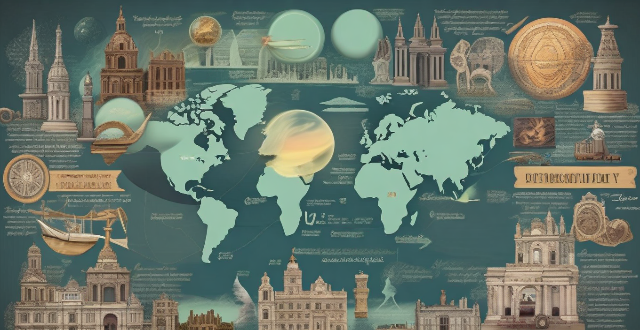The text discusses the importance of applying historical knowledge to real-world situations and current events. It provides ten ways to apply historical knowledge, including contextualizing current events, analyzing causation, predicting outcomes, informing decision making, promoting critical thinking, enhancing cultural understanding, improving communication skills, developing empathy, informing policy and advocacy, and inspiring creativity and innovation. The conclusion emphasizes that connecting the dots between past and present can help make more informed decisions and work towards a better future.

Applying Historical Knowledge to Real-World Situations and Current Events
Introduction
Understanding history is not just about memorizing dates and events, but rather it's about learning from the past to gain insights into the present and future. By applying historical knowledge to real-world situations and current events, we can make more informed decisions, understand complex issues better, and avoid repeating past mistakes.
How to Apply Historical Knowledge
1. Contextualize Current Events
- Use historical context to understand the roots of current events.
- Recognize patterns and trends that have emerged over time.
2. Analyze Causation
- Identify causes and effects in historical events to draw parallels with current situations.
- Consider multiple perspectives and factors that contributed to historical outcomes.
3. Predict Outcomes
- Use historical precedents to forecast potential outcomes of current events.
- Evaluate the likelihood of different scenarios based on historical data.
4. Inform Decision Making
- Incorporate historical lessons into decision-making processes.
- Consider the long-term consequences of actions based on historical examples.
5. Promote Critical Thinking
- Encourage questioning and challenging assumptions using historical evidence.
- Analyze biases and motivations behind historical narratives.
6. Enhance Cultural Understanding
- Learn about different cultures and societies through their histories.
- Appreciate the diversity and complexity of human experiences across time and space.
7. Improve Communication Skills
- Articulate arguments using historical examples to support your point of view.
- Engage in discussions with others by referencing shared historical knowledge.
8. Develop Empathy and Perspective Taking
- Put yourself in the shoes of historical figures to understand their choices and circumstances.
- Apply this empathy to contemporary individuals and groups facing similar challenges.
9. Inform Policy and Advocacy
- Use historical evidence to shape policies aimed at addressing social issues.
- Advocate for change by highlighting successful or failed historical approaches.
10. Inspire Creativity and Innovation
- Draw inspiration from historical innovations and achievements.
- Apply creative problem-solving techniques learned from historical figures.
Conclusion
Applying historical knowledge to real-world situations and current events is a valuable skill that enhances our understanding of the world around us. By connecting the dots between past and present, we can make more informed decisions, engage in thoughtful dialogue, and work towards a better future. Remember, those who cannot remember the past are condemned to repeat it.